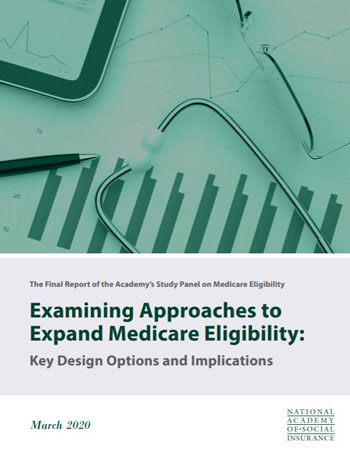By:
Published:
Medicare & Health Policy
Medicare is a federal health insurance program for adults age 65 and older and younger individuals receiving Social Security Disability Insurance benefits. The U.S. healthcare system is primarily composed of private employer-sponsored insurance, federally funded insurance programs including Medicare, Medicaid, the Children’s Health Insurance Program, military programs (Veterans Health Administration and TRICARE), and private insurance purchased through the ACA marketplaces.

Examining Approaches to Expand Medicare Eligibility
The final report of the Academy Study Panel on Medicare Eligibility outlines the tradeoffs and implications of key policy design decisions for three reform approaches: lowering the eligibility age, expanding coverage to all, and a Medicare Buy-in option.
dddddddddddddddddd
